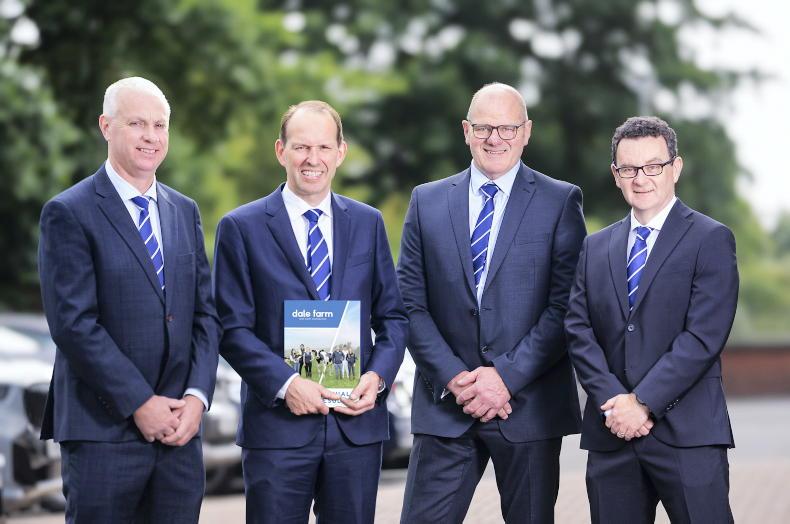For the fourth year in succession, Dale Farm has posted a record operating profit.
In the 12 months to the end of March 2025, the dairy co-op saw operating profit up marginally at £37.7m, compared to £37.5m in the previous year. Turnover in the last financial year was £722.4m, an increase of 14% on the £631.4m from 2023-2024.
That left operating profit margin in 2024-2025 at 5.2%. In the last four years it has ranged from 4.3% to 5.9%, which is around double what is normally seen within agri-food processing in NI.
Speaking to the Irish Farmers Journal, Dale Farm CEO Nick Whelan said the aim is to generate high cashflow to build the business, while also being able to pay a sustainable milk price. He points out that the co-op has paid prices in the last year that compare favourably with any processor across the island of Ireland.
The company has just spent £70m to upgrade cheese processing at Dunmanbridge in Cookstown and plans to invest another £100m over the next three to five years on digitisation and automation across its sites.
“We are constantly looking at how we are managing our costs. Our big enemy is cost,” said Whelan.
On more immediate prospects for milk prices, he described the current market as “a bit soft” due to 10% increases in milk volumes here and 5 to 6% increases in Britain, but overall, demand is “incredibly resilient and robust”.
NAP
Whelan has also found himself fully engaged around issues to do with the Nutrients Action Programme (NAP) and in particular, solutions to the problem of excess phosphorus (P) in farming.
“If we don’t do something, it is quite stark – you don’t have a business, you don’t have an industry. A solution to NAP is actually core to us,” he said.
The co-op has done some work with Blakiston Houston Estates, which is one of the companies looking at separating slurry as part of DAERA’s Sustainable Use of Livestock Slurry initiative.
Ultimately, the big plan set out by DAERA is to use the solids fraction of separated slurry as a feedstock for anaerobic digestion, with the digestate then processed to mine out P, creating a biofertiliser that can be sold outside of NI.
“I think we will be investing in that area – we are very interested in it,” said Whelan.
He added there are other potential technologies coming forward that could also help solve the problem of excess P, but ultimately the industry needs time and “a little bit of help” from government.
“We need solutions that ensure industry is thriving and can grow – I am quite confident we can do both,” he said.
Since Whelan took over in 2017, the Dale Farm milk pool has grown from 723m to 1bn litres. He would like growth to continue, driven by members sustainably increasing output.
However, given issues around NAP, etc, he admits that if he could be guaranteed to still have 1bn litres in five years, he “would probably take it”.






 This is a subscriber-only article
This is a subscriber-only article










SHARING OPTIONS: